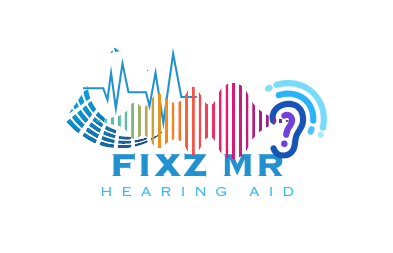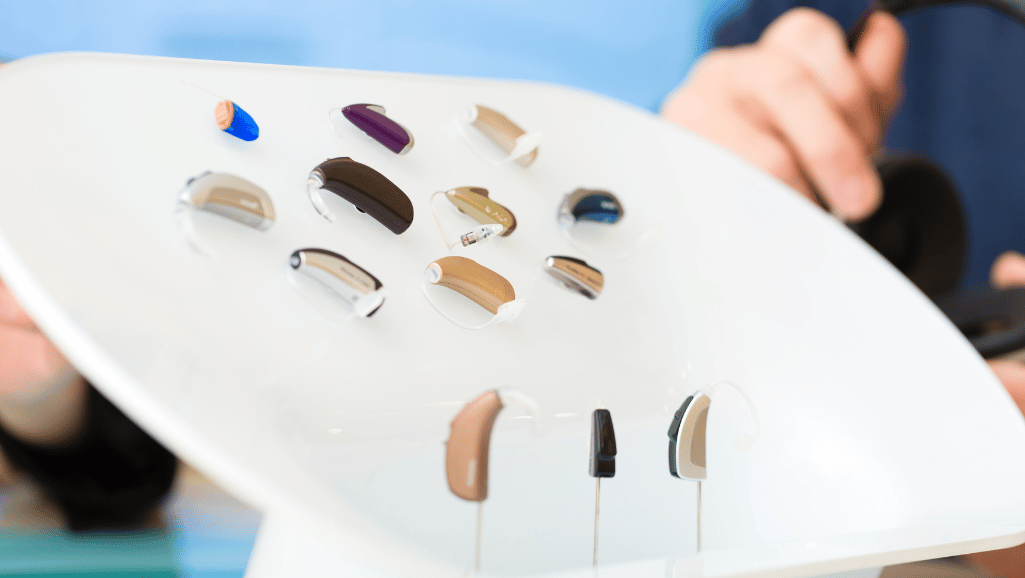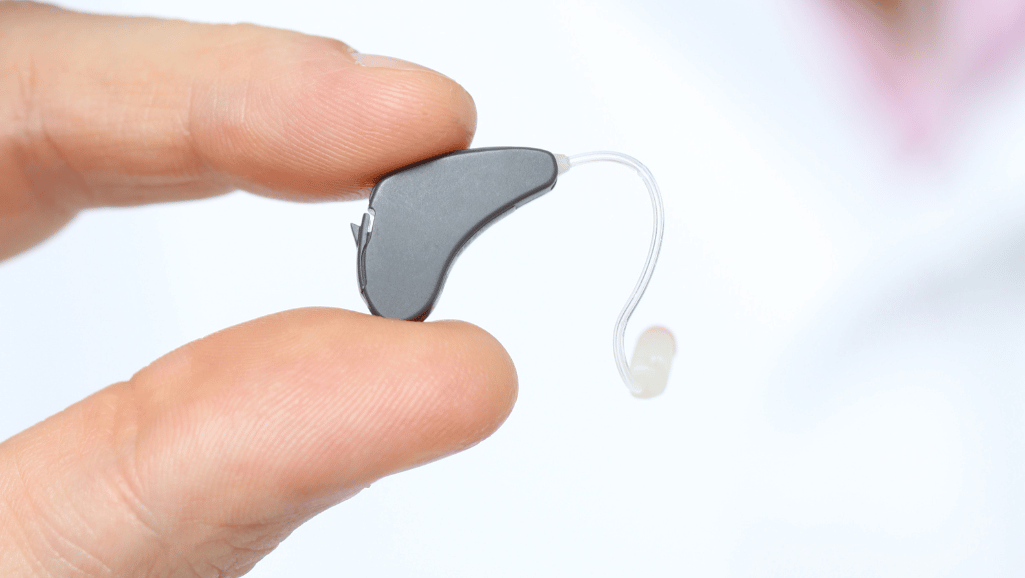Hearing aids can greatly improve life quality for many seniors and adults. Yet, figuring out Medicare hearing aid coverage can be tough. Medicare Parts A and B don’t cover the cost of hearing aids or checkups. This means people often have to pay $4,600 for a pair of aids or $2,700 for one ear. Sadly, this gap in Medicare coverage can cause financial strain for many.
We’ll look into various parts of Medicare hearing aid coverage in this article. We’ll explain why the current Medicare setup doesn’t include hearing aids and exams. We’ll also discuss what other Medicare plans and financial aid options are out there. Hearing Aids Covered by Medicare
Key Takeaways
- Medicare Parts A and B do not cover hearing aids or exams for fitting them.
- The average cost of hearing aids is $4,600 per pair, a significant out-of-pocket expense for many seniors.
- Some Medicare Advantage plans might offer partial coverage for hearing aids.
- State-specific Medicaid programs provide varied coverage for hearing aids.
- Beneficiaries must explore alternative options for financial assistance and coverage.
Understanding Medicare: An Overview
Medicare is a health insurance program for Americans aged 65 and over. It also covers those with severe kidney disease and certain disabilities. Learning about its features is crucial to get the most out of it. This is particularly true when looking at what Medicare offers for hearing aids.
What is Medicare?
Medicare started in 1965 to give health coverage to Americans. It helps by offering financial aid and medical care. But, it doesn’t pay for hearing aids. So, people have to find approved providers on their own.
Parts of Medicare: A, B, C, and D
There are four parts to Medicare, each covering different health needs:
- Part A – Hospital Insurance: Pays for hospital stays, skilled nursing stays, and hospice care. It also covers some home care services.
- Part B – Medical Insurance: This part includes doctor’s visits and medical supplies. It doesn’t pay for hearing aids or the exams to fit them.
- Part C – Medicare Advantage: Run by private companies, these plans cover Parts A and B. They include added benefits like dental and vision, and sometimes hearing aids.
- Part D – Prescription Drug Coverage: It helps with the cost of medications, offering more health support.
Medicare Parts A and B do not assist with hearing aid costs. This leads people to check out Medicare Advantage plans or other insurance for help.
Medicare Part B and Hearing Services
People on Medicare wonder about hearing service coverage. Medicare Part B helps with the cost of some tests needed for medical reasons. It doesn’t cover hearing aids or the tests to fit them, though.
Diagnostic Hearing Exams
Medicare Part B will pay for tests that diagnose hearing and balance issues. But, you have to pay a deductible first and 20% of the test cost after that. If these tests happen in a hospital, you might pay more.
Coverage Limitations under Part B
Medicare won’t help with the cost of hearing aids or the check-ups needed to get them. This puts a big financial strain on those in need, pointing out a flaw in Medicare and hearing aid coverage. Most people have to pay for hearing aids themselves, which can be very expensive.
Many people look for other ways to pay for their hearing aids. But, it’s tough because about 40% of states don’t cover hearing aids for adults through Medicaid. While 60% of states provide some help, not much has changed to get Medicare to cover hearing aids.
Medicare Advantage Plans and Hearing Aid Coverage
Medicare Advantage Plans, also called Part C, are a different choice from Original Medicare. They come from private insurance companies. These plans may offer more, like covering the cost of hearing aids. But, the amount they cover for hearing care can differ a lot. So, it’s smart to look into it closely.
How Medicare Advantage Works
Medicare Advantage plans combine Parts A and B and often add vision, dental, and hearing aid coverage. But, they work with a set network of hospitals and doctors. You usually only get full coverage by using in-network providers. Plus, you must pay the Part B deductible and any premiums.
Benefits compared to Original Medicare
The big plus of Medicare Advantage plans is that they cover more services than Original Medicare. This includes hearing aids. Medicare policies on hearing aid coverage show that these plans can help pay for some or all of the cost. For instance, big insurers like Humana and Aetna provide different levels of hearing aid coverage.
Finding a Medicare Advantage Plan with Hearing Aid Public Coverage
Since coverage can vary a lot, it’s important to compare plans well. It’s key to call the insurance companies or ask a Medicare expert about the hearing aid coverage. The time between October 15 and December 7 each year is the general time to pick a new plan. This is a good time to switch if your plan doesn’t meet your hearing health needs.
Does Medicare Cover Hearing Aids?
People often wonder if Medicare includes hearing aids. The truth is that Original Medicare (Parts A and B) usually doesn’t. This means you’ll have to find other ways to pay for them.
Specifics of Coverage
If a doctor says you need a hearing or balance test, Medicare Part B might help. But, it doesn’t cover the actual aids. It does, however, cover some high-tech devices like auditory Osseo integrated devices.
Reasons for Exclusion
In 1965, Congress decided not to cover hearing aids with Medicare. They thought people could manage without them. Since then, even though technology has improved, this rule hasn’t changed. So, many need to look elsewhere for help, like Medicare Advantage plans.
Hearing aids can be quite expensive, costing up to over $6,000. On average, a pair costs about $4,600. This high cost shows why Medicare’s lack of coverage is such a big issue. It highlights the need to find other ways to help pay for them.
Hearing Aids Covered by Medicare
Figuring out hearing aid insurance with Medicare can seem tough. Original Medicare Parts A and B don’t pay for hearing aids or services. But, some Medicare Advantage (Part C) plans might cover these costs. Each plan is different, so carefully look at what each one offers. This will help you find the best hearing aid coverage.
Hearing aids can cost around $4,600 for a pair or $2,700 for one. This is a lot of money for many people. Medicare doesn’t usually help pay for these. Yet, some Medicare Advantage plans do help with costs for hearing aids and related services, but how much they help can vary a lot. Be sure to check what each plan covers. Some plans help a lot, like private insurance or what Veterans get, if they can.
Medicare Advantage plans have more benefits than Original Medicare. To get help with hearing aids through Medicare, talking to your insurance or a Medicare advisor is key. Earpiece makers like Jabra Enhance and Audien have them for any budget, from $99 to $1,995. Some Medicare Advantage plans might help pay for these.
Hearing aid options are changing, with more choices and some states helping more. But, there are differences across the country, with just 30 states helping more through Medicaid. This is better than Original Medicare.
Looking for hearing aid help through Medicare might seem tough. But, doing your research and picking the right plan will make it easier.
Alternative Ways to Save on Hearing Aids
Hearing aids can be expensive, often with little help from Medicare. Because of this, it’s smart to look for other ways to save money. Luckily, there are several options to explore to cut down costs on hearing aids.
Charitable Foundations and Local Organizations
Local groups and charities are key in helping those who can’t afford high hearing aid prices. Lions Clubs and similar organizations offer help. They give financial aid or donated hearing aids. This is a big help for people not covered by Medicare.
Over-the-Counter Hearing Aids
Traditionally, buying hearing aids needed a prescription and a visit to an audiologist. But now, over-the-counter (OTC) hearing aids make this process simpler. They’re for people with mild to moderate hearing loss and cost less than ones from the doctor. You can get them for $99 to $1,000 per pair. This is a great option for many folks, especially if they don’t have good hearing aid coverage.
Other Financial Assistance Programs
Don’t forget about health savings accounts (HSAs) and flexible spending accounts (FSAs). These let you save money before taxes for things like hearing aids. If you’re a U.S. military veteran, the Veterans Administration can help. They might give you the best hearing aids for free.
It’s wise to check out these alternatives. They can help you save a lot on hearing aids, making it easier to manage the costs. This advice is especially important as Medicare plans’ support for hearing aids can vary widely.
Medicare Policy Changes and Hearing Aid Coverage
Since starting in 1965, Medicare has had small changes about covering hearing aids. Even though people have tried to add this coverage with new laws, big changes haven’t happened yet. When Medicare began, they didn’t cover hearing aid services, saying they weren’t a big need for everyone, and they cost a lot.
Historical Context and Legislation Attempts
Many attempts have been made to change this over the years. For example, the “Seniors Have Eyes, Ears, and Teeth Act” tried to make Medicare cover more. But, these ideas have never become real laws. So, people on Medicare often have to pay a lot for their hearing aids, about $4,600 for a pair.
Future Outlook and Expert Opinions
The chances of Medicare adding hearing aid coverage are still unsure. Experts think, without big Medicare changes, hearing aids won’t be included. Since Medicare Parts A and B don’t help with hearing aids or tests, people look for other options or use Medicare Advantage plans.
Many people struggle because they need to pay so much for hearing help. Some private plans and the Veterans Administration can help pay for some things. But, these options aren’t the same for everyone with a Medicare plan.
If you want to know more, the National Council on Aging can give you updates on this. Learn more about Medicare coverage for hearing aids.
Comparing Costs: Medicare vs. Private Insurance
It’s key to know how Medicare and private insurance differ in covering hearing aids. Medicare Parts A and B don’t include hearing aids. But, private insurers often cover more. This matters because many people over 12 have hearing loss, including 75% of those 70 and older.
Private Health Insurance Options
Health insurers like Aetna, Blue Cross Blue Shield, and others offer different hearing aid benefits. These plans often cover exams, aids, and supplies. This is a big plus over Medicare’s limited benefits.
Coverage varies by policy and insurer. Hearing aids can cost from $1,000 to $8,000 or more. So, private insurance can be a big help with these costs.
Flexible Spending Accounts and Health Savings Accounts
FSAs and HSAs are helpful for hearing aid expenses. They let you save money before taxes for medical needs, including aids. This can cut the costs a lot.
OTC hearing aids, priced from $299 to $2,500, are cheaper than prescription ones. FSAs and HSAs can also cover these, giving more options to save money.
Veterans Administration Benefits
Veterans can get premium hearing aids from the VA at little to no cost. This is important for the 38 million Americans who need help hearing. It greatly supports veterans with hearing issues.
In the end, the costs of hearing aids with Medicare and private insurance differ. But, there are ways to lower the expenses. Understanding all your options, from FSAs to VA benefits, is essential.
Medicaid and Hearing Aid Coverage
Medicaid works differently than Medicare when it comes to hearing aids. It offers benefits depending on the state, leading to a mix of coverage types nationwide. This means if you’re using Medicaid for hearing aids, it’s vital to understand your state’s rules.
State-by-State Variations
No two states in the U.S. treat Medicaid hearing aid coverage the same. While some states offer no help for adults, others do have support. This means you need to check your state’s specific rules to know what help you can get.
Coverage Criteria and Limitations
Getting aid through Medicaid often means you need a diagnosis and a prescription from a doctor. Medicaid must cover hearing aids for those under 21, but adults might find it harder to get help, depending on the state. Each state sets its own rules about what kinds of hearing aids are covered, the need for permission before buying, and restrictions on yearly costs.
In California, for instance, Medi-Cal’s coverage allows up to $1,510 for hearing aids each year. But, you must get permission first through a TAR. Remember, Medi-Cal won’t cover battery costs, and some services have strict limits.
Since Medicaid programs vary by state, it’s essential to know what your state offers. Talking to healthcare providers or contacting Medicaid directly can clear up any confusion. Knowing these specifics can make a big difference in getting the hearing aid support you need.
| State | Adult Coverage | Special Requirements | Youth Coverage |
|---|---|---|---|
| California | Yes, up to $1,510 annually | TAR required | Covered |
| New York | Varies by need | Prescription required | Covered |
| Texas | No | N/A | Covered |
Steps to Take If Medicare Doesn’t Cover Your Hearing Aids
If Medicare doesn’t help pay for your hearing aids, look for other ways to get the financial support you need. There are key steps you can take:
Contacting Medicare and Other Resources
First, get in touch with Medicare. Find out what your plan includes and any limits on hearing aid help. You might learn you’re covered for certain tests related to hearing under Medicare Part B.
Next, check with the National Council on Aging (NCOA). They can guide you on making the most of Medicare’s benefits. They may also suggest other ways you can get financial aid.
Understanding Out-of-Pocket Costs
Knowing how much you may have to pay from your own pocket for hearing aids is important. Let’s look at what hearing aids cost and what choices you have:
| Brand | Price per Pair | Warranty | Financing Options |
|---|---|---|---|
| MDHearing | $1,195–$1,995 | 1–3 years | Available |
| Audien | $99–$249 | 1 year | Not available |
| Audicus | $1,398–$2,998 | 2 years | Available |
| Eargo | $1,850–$2,950 | 1 or 2 years | Available |
| Jabra Enhance | Varies | Varies | Available |
Hearing aids typically cost around $4,600 for a pair. This high cost might worry you. But, many brands offer a chance to pay over time. This can lower the pressure of the big bill for many people shopping for a hearing aid.
By learning these steps, you’ll be able to look into different options. You can then find the best and most affordable way to improve your hearing ability.
Conclusion
Finding Medicare benefits for hearing aids isn’t easy. This is because Medicare doesn’t cover these crucial devices. Since 1965, when Medicare started, hearing aids and their services have not been part of what it covers. This puts many older Americans in a tough spot, facing high costs alone. In 2014, the average cost of one hearing aid was $2,363. Since most people need two, this is a big financial hit.
Hearing aids are important because they are tied to other health problems. For example, even mild hearing loss can make someone more likely to develop dementia. Moderate loss makes the risk even higher. Severe loss increases the risk five times more. Also, hearing loss is linked to more falls and feelings of depression. This shows why hearing care is crucial.
But, there are ways to get help with hearing care. It includes knowing Medicare’s policies well and looking into Medicare Advantage plans. Also, some support programs can help. For mild to moderate loss, over-the-counter hearing aids can save a lot of money. It’s also good to stay updated on any policy changes. Knowing about things like income and Medicaid rules can help find solutions.
Getting help with Medicare for hearing aids might seem hard. Yet, with the right info and help, costs and challenges can reduce. Keeping up with changes in healthcare is also key. Being proactive and informed is crucial for getting the help you need for your hearing.









